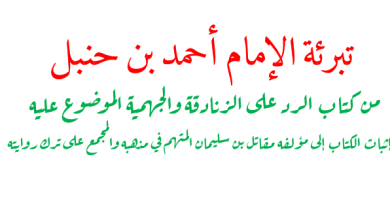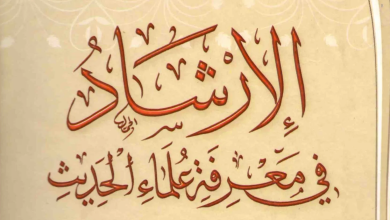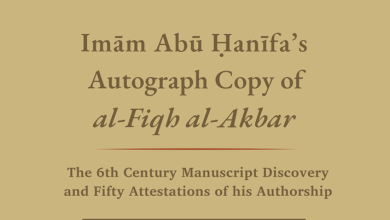Virtues of the Night of Mid Sha’ban
The great Mujtahid Imam, Muhammad ibn Idris al-Shafi’i (d. 204 AH) said in his Kitab al-Umm (1/264):
الأم للشافعي (1/ 264)
(قَالَ الشَّافِعِيُّ) : وَبَلَغَنَا أَنَّهُ كَانَ يُقَالُ: إنَّ الدُّعَاءَ يُسْتَجَابُ فِي خَمْسِ لَيَالٍ فِي لَيْلَةِ الْجُمُعَةِ، وَلَيْلَةِ الْأَضْحَى، وَلَيْلَةِ الْفِطْرِ، وَأَوَّلِ لَيْلَةٍ مِنْ رَجَبٍ، وَلَيْلَةِ النِّصْفِ مِنْ شَعْبَانَ أَخْبَرَنَا الرَّبِيعُ قَالَ أَخْبَرَنَا الشَّافِعِيُّ قَالَ أَخْبَرَنَا إبْرَاهِيمُ بْنُ مُحَمَّدٍ قَالَ رَأَيْت مَشْيَخَةً مِنْ خِيَارِ أَهْلِ الْمَدِينَةِ يَظْهَرُونَ عَلَى مَسْجِدِ النَّبِيِّ – صَلَّى اللَّهُ عَلَيْهِ وَسَلَّمَ – لَيْلَةَ الْعِيدِ فَيَدْعُونَ وَيَذْكُرُونَ اللَّهَ حَتَّى تَمْضِيَ سَاعَةٌ مِنْ اللَّيْلِ، وَبَلَغْنَا أَنَّ ابْنَ عُمَرَ كَانَ يُحْيِي لَيْلَةَ جُمَعٍ، وَلَيْلَةُ جُمَعٍ هِيَ لَيْلَةُ الْعِيدِ لِأَنَّ صَبِيحَتَهَا النَّحْرُ (قَالَ الشَّافِعِيُّ) : وَأَنَا أَسْتَحِبُّ كُلَّ مَا حُكِيَتْ فِي هَذِهِ اللَّيَالِيِ مِنْ غَيْرِ أَنْ يَكُونَ فَرْضًا.
“It has reached us that supplications are answered on five nights: the night of Jumu’ah, the night of (Eid) al-Adha, the night of (Eid) al-Fitr, the first night of Rajab, and the middle night of Sha’ban.”
He then afterwards comments, “And I prefer [acting on] what that has been reported concerning these nights without deeming it an obligation.”
With regards to the significance of this night the reader may read the short article linked here:
The Significance of the 15th of Sha’ban
Certain Muslims today deny the authenticity of the overall strength of the narrations linked to this night of the 15th of Sha’ban. Some of them being the admirers of the late Nasirud-Din al-Albani (d. 1999). Indeed, he too has authenticated some narrations on this matter, as has another late Albanian Shaykh known as Shu’ayb al-Arna’ut (d. 2016, see below).
Let us proceed to quote what his view was on some of these narrations and conclude with a short booklet by Shaykh Fazlur Rahman Azmi appended beneath with regard to the status of these type of narrations as well as what is acceptable, what are the rejected innovations (bid’at); and thus discouraged.
The following link by one of his admirers has mentioned his view. Link:
The Virtue of the 15th Night of Sha’baan
Quote from al-Albani’s Silsilatul-Ahaadeethis-Saheehah #1144:
[ In the Name of Allaah, the Most Merciful, may His Complete Salaah and Salaam be upon His final Messenger, to proceed… ]
As for what is authentic regarding the night of the 15th of Sha’baan, [The Prophet, sallallaahu ‘alayhe wa sallam, said,]
“Allaah, the Blessed and Exalted, comes to His Creation on Laylatun-Nisf (the 15th night) of Sha’baan, and He forgives all of His Creation, except for the polytheist and the mushaahin [1].”
It is an authentic narration narrated by a number of Companions with a number or different chains that strengthen each other, by way of Mu’aath ibn Jabal, Aboo Tha’labah Al-Khushanee, ‘Abdullaah ibn ‘Amr, Aboo Moosaa Al-Ash’aree, Aboo Hurayrah, Aboo Bakr As-Siddeeq, ‘Awf ibn Maalik, and ‘Aa’ishah… [2]
…So in summary, the narration is authentic without a doubt, as authenticity could be established for it even if there were not so many routes, so long as they are free of any severe weaknesses, as is the case with this narration.
As for what Al-Qaasimee, may Allaah Most High have Mercy on him, quoted in Islaah Al-Masaajid (p.107) [3], that the scholars of Hadeeth say that there is no authentic narration about the virtue of Laylatun-Nisf (the 15th night) of Sha’baan, it is not something to be relied upon. And if any of them did say this statement, then it was only from their haste and lack of effort in tracing the numerous routes (of the narration) as has been done here, and Allaah is the One who grants success. [4]
———————————————————————————————————
Shaykh Shu’ayb al-Arna’ut (d. 2016) of Amman, Jordan has also declared the overall narration to be Sahih with its witnessing narrations (like al-Albani did) with the wording quoted above. He did this in his editing of the rearranged edition of Sahih ibn Hibban known as al-Ihsan fi tartib Sahih ibn Hibban (12/481, no. 5665) by Imam ibn Balban, under a narration from Mu’adh ibn Jabal (ra). Note, al-Albani also declared the version from Mu’adh ibn Jabal (ra) to be Hasan (good) in his notes to Sahih Ibn Hibban entitled: al-Ta’liqat al-Hisan ala Sahih Ibn Hibban (8/193, no. 5636). Al-Albani also declared the version from Abu Tha’laba al-Kushani (ra) to be Hasan (good) in his Sahih al-Jami al-Saghir (no. 771) and also declared the vesion from Abu Musa al-Ash’ari (ra) to be Hasan also in his Sahih al-Jami al-Saghir (no. 1819).
It is also noteworthy that the greatest scholar of Hadith on the face of the earth in his time, known as the Amir al-Mu’minin fil hadith, al-Hafiz ibn Hajar al-Asqalani (d. 852 AH) narrated some of the routes of this hadith in question going back to Sahaba (Companions) like A’isha, Mu’adh ibn Jabal and Abu Bakr al-Siddiq (radiallahu anhum ajma’in) in his al-Amali al-Mutlaqa (1st edn, 1995 CE, pp. 119-122, al-Maktab al-Islami, ed. Hamdi Abdal Majid al-Salafi, the late associate of al-Albani ), and at the end of this section he declared the narration from Abu Bakr (ra) to be a Hasan (good) hadith.
Download by clicking – HERE
Read online:






